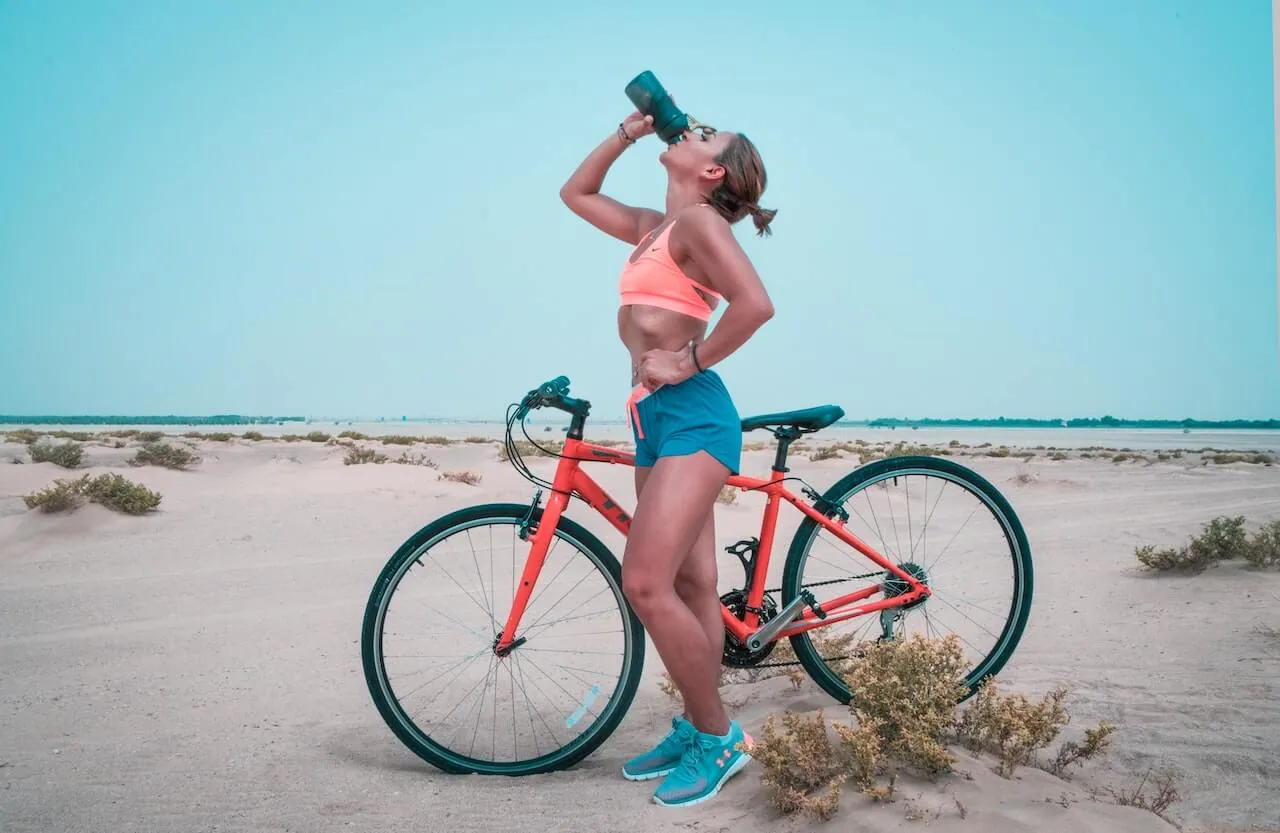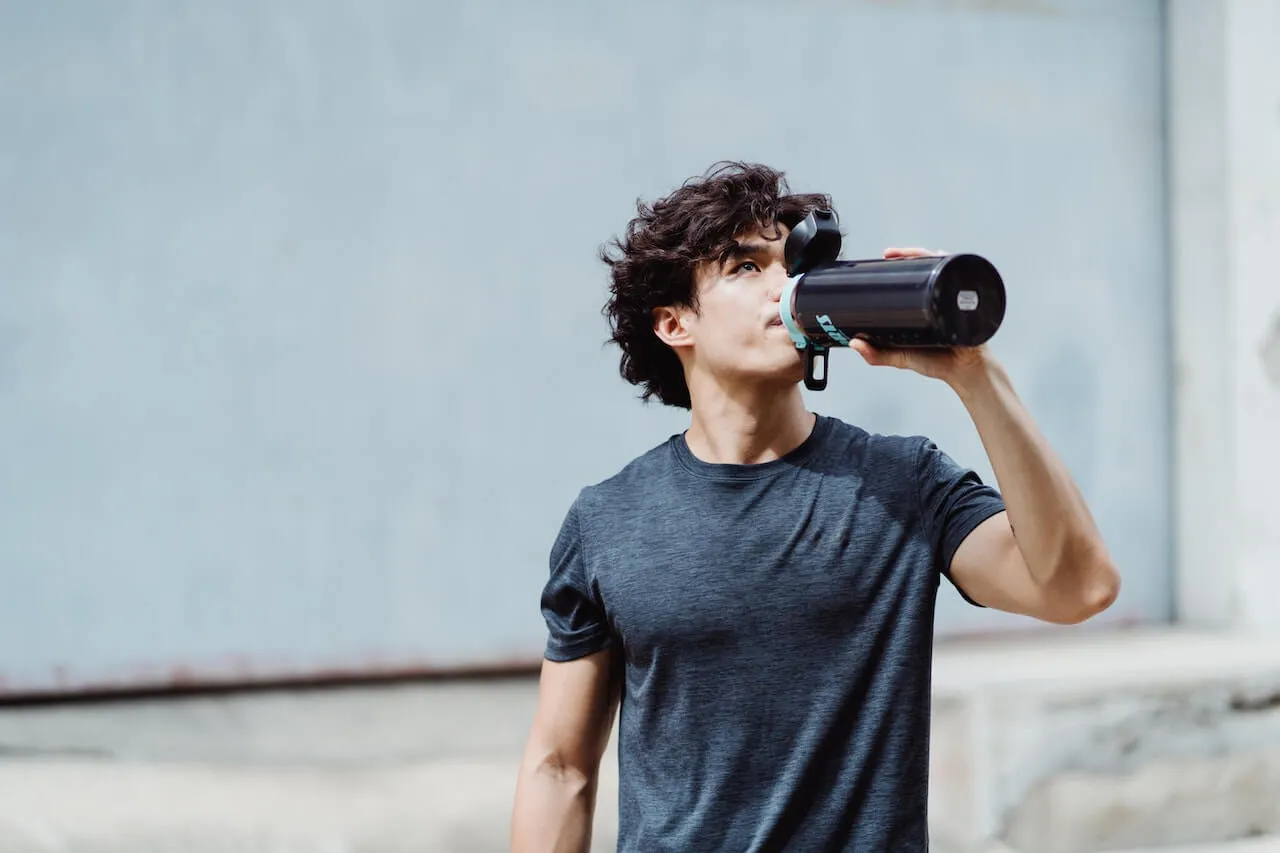Muscle contractions are essential for movement and various bodily functions, like walking, running, maintaining posture, and stabilizing joints. However, they’re classified as muscle cramps when they happen suddenly and involuntarily. Ouch. Muscle cramps, which often occur during exercise or sleep, can be extremely painful. But what causes these random muscle spasms?
Unfortunately, there isn’t just one cause of muscle cramps. Their origin can be complex, involving everything from electrolyte imbalances to overuse to medical conditions. Still, adequate hydration is crucial for healthy blood flow and can be a game-changer in cramp prevention. So, what is the best drink to prevent muscle cramps?
Not to worry. We have a list of some of the best ways to stay hydrated to keep those Charley horses at bay!
{{mid-cta}}
The 8 Best Drinks to Prevent Muscle Cramps

Whether you’re a competitive athlete in the thick of training or simply trying to optimize muscle health, muscle cramps can be a frustrating setback. Many lifestyle choices affect muscle function, but staying hydrated can significantly improve muscle health. Proper hydration, in conjunction with a well-balanced diet, helps maintain muscle contraction and can prevent unwanted muscle spasms. However, some beverages may be more beneficial than others.
Some drinks provide essential vitamins, minerals, and electrolytes that can help optimize muscle health and performance. While there’s no one-size-fits-all way to stay hydrated, incorporating nutrient-rich beverages can enhance endurance and recovery while reducing the risk of muscle cramps.
Let’s explore eight hydrating beverages packed with essential nutrients that support muscle function and fend off those pesky cramps. There’s sure to be something for everyone on this list!
1. Bone Broth
Bone broth is known for its rich nutrient profile, making it an excellent beverage to have on hand in the fight against muscle cramps. Bone broth contains collagen and amino acids, supporting joint and muscle health and aiding post-workout recovery. However, most notably, bone broth contains crucial electrolytes, like sodium and calcium, that support proper muscle function and can help prevent cramping.1, 2, 3
While sodium’s role in exercise-associated muscle cramps remains unclear, research indicates that replacing sodium lost through sweat may improve physical performance. Incorporating bone broth into your hydration efforts can offer health benefits beyond plain water.4, 5
2. Milk
Sports drinks see a lot of hype in the hydration market. However, milk is a powerhouse beverage with a rich nutrient profile. It’s packed with carbohydrates, calcium, vitamin D, magnesium, and other essential nutrients that offer many health benefits, including a reduced risk of muscle cramps.6
Calcium, an essential mineral in several signaling pathways, plays a key role in muscle contraction. In fact, healthcare professionals have even linked calcium deficiency to muscle spasms. Interestingly, vitamin D can also play a key role in muscle contractions, as it helps the body absorb calcium. So, drinking milk may support muscle health in more ways than one.7, 3
3. Tomato Juice
Tomato juice can be a real winner for preventing muscle cramps. It features a rich nutrient profile high in potassium, an essential electrolyte for muscle contraction and relaxation. One cup of canned tomato juice contains 527 milligrams of potassium, approximately 16% of the recommended Daily Value. Tomato juice is also a good source of magnesium and vitamins A and C, which help regulate nerve function and promote overall health.8, 9
Furthermore, tomato juice is about 94% water by weight. Drinking the savory beverage can be an excellent way to support overall hydration or replenish fluids lost during physical activity. Thanks to its rich nutrient profile, it may also improve muscle recovery.8
4. Coconut Water
Thanks to its impressive electrolyte profile, coconut water can be an excellent go-to for cramp prevention. Many people turn to 100% pure coconut water for a post-workout recovery drink. It’s low in calories but contains carbohydrates for a quick energy source, making it an ideal option for replenishing fluids lost through sweat.
It also contains nutrients that support fluid balance and muscle function, such as potassium, magnesium, calcium, and sodium. These electrolytes play a key role in muscle contraction and are crucial for preventing muscle spasms.10
5. Electrolyte Drinks
Electrolyte drinks see a lot of hype when it comes to preventing muscle cramps and for a good reason. These beverages typically contain notable amounts of powerhouse electrolytes like potassium, calcium, and magnesium. Whether it’s ready to drink or you need to mix an electrolyte powder with water, these beverages can help you supplement micronutrient deficiencies in your diet.
Still, many brands also prioritize sodium in their formulas. While sodium is crucial for fluid retention, it’s not the be-all and end-all of hydration. Excessive sodium intake may have adverse side effects on overall health. It’s essential to balance your intake and meet all your nutrient needs for proper muscle function. Many healthcare providers recommend looking for electrolyte mixes that contain a balance of nutrients.11
6. Orange Juice
Orange juice isn’t just for your breakfast menu anymore. Nope! It can be an ideal hydration solution to help prevent muscle cramping all day long. Orange juice contains minerals like potassium and magnesium, and fortified varieties also contain significant amounts of calcium.12
Orange juice is also rich in vitamin C, which plays a crucial role in collagen production. Collagen is essential for muscle and joint health, highlighting the importance of meeting your daily vitamin C needs. Additionally, the natural sugars in orange juice can provide a quick energy boost, improving endurance during physical activity.13
7. Water
Few things are more universal than drinking water for hydration. While this article is not intended to provide medical advice, many healthcare professionals recommend drinking plenty of water daily. Adequate body water is essential for overall health. It is necessary for various biological functions, including digestion, transporting nutrients and waste, and regulating body temperature.14
Dehydration can interfere with blood volume, causing an imbalance of electrolytes and leading to several potential adverse side effects. Insufficient water intake can cause can cause a breakdown of muscle tissue, unintentional body weight loss, and muscle weakness. Dehydration and poor blood volume can also interfere with the transportation of nutrients and oxygen throughout the body. Additionally, not drinking enough water can hinder the removal of waste products created by muscle metabolism.15
Drinking enough water before, during, and after exercise can support overall health and reduce cramping. However, water needs can be very individualized based on age, body composition, physical demands, and medical history. Your doctor or registered dietitian can help you understand your fluid needs and water intake.
8. Pedialyte
Pedialyte originated as a hydration solution for children but has since expanded to serve a wide range of consumers, including adults. It may be especially beneficial for those who lose a lot of sweat during their workouts. It’s formulated with a balance of electrolytes and carbohydrates to enhance absorption in the intestines and support hydration.
Solutions like Pedialyte can effectively prevent muscle cramps and dehydration. Restoring lost fluids and electrolytes with Pedialyte or similar products may even help optimize muscle performance through improved hydration.
<div class="pro-tip"><strong>Also Read: </strong><a href=how-much-water-should-you-drink-a-day>How Much Water Should You Drink in a Day</a></a>.</div>
Drinks That Don’t Help Prevent Muscle Cramps

Not all beverages are created equal when it comes to preventing muscle cramps. While many drinks contain nutrients and compounds that support muscle cramp prevention, some can actually hinder hydration efforts. Understanding how to maximize hydration can be a game-changer in preventing muscle cramps.
Here are a few drinks that may be less effective for cramp prevention:
- Tonic Water: Tonic water contains quinine, often used to treat nighttime leg cramps. However, based on the latest research, the FDA does not recommend this. Excessive intake of quinine has been linked to adverse side effects, such as nausea, vomiting, confusion, acute kidney injury, and tinnitus. Additionally, one 12-ounce can of tonic water contains 32 grams of sugar, which could contribute to poor blood sugar control and dehydration.16, 17
- Energy Drinks: While the caffeine in energy drinks can provide a temporary boost of energy, its diuretic effects may also cause dehydration. This dehydration may increase the risk of muscle cramps or exacerbate spasms. Most energy drinks also lack the nutrients required for proper muscle function.
- Pickle Juice: There has been a longstanding myth that pickle juice is an ideal solution for cramps, especially in the leg muscles. While that may be true for some people, like a specific population of those with liver cirrhosis, there isn’t much research to back up the claim for sports medicine use.18, 19
- Sugary Beverages: Sugar-sweetened beverages, like teas and sodas, can cause a spike in your blood sugar, triggering your body to pull water out of its cells and into its bloodstream. Sugary beverages have been shown to worsen dehydration.20
It’s also important not to forget the role that nutritious foods play in muscle cramp prevention. A well-balanced diet, rich in nutrients like potassium, calcium, and magnesium, can support adequate hydration and muscle contraction. Foods like sweet potatoes, watermelon, bananas, and avocados may help prevent muscle cramps. A registered dietitian can help you navigate the many decisions that go into tailoring your diet for optimal hydration and muscle health.
<div class="pro-tip"><strong>Learn More: </strong><a href=electrolyte-drinks-without-sugar>Best Sugar-Free Electrolyte Drinks: Hydration Without Sugar</a>.</div>




.svg)






.webp)



.svg)
.svg)
.svg)
.svg)
.svg)
.svg)
.svg)
